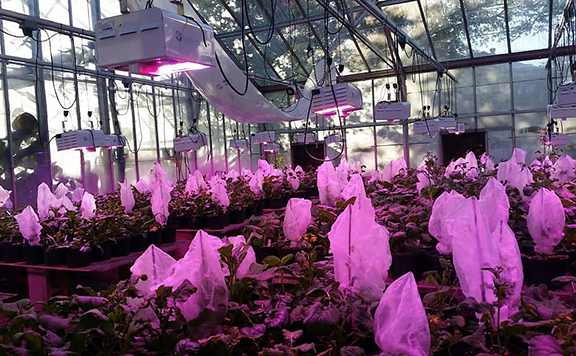

Miami's greenhouses: Overflowing with plants and research
By Susan Meikle, university news and communications
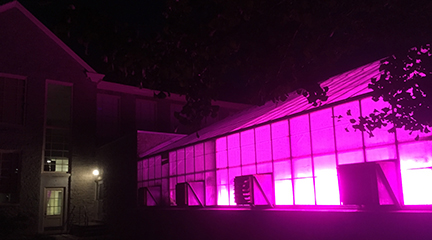
Belk glows pink with new LED lighting.
With new faculty in plant biology, the new Institute for Food farm and new LED lighting, Miami’s Belk greenhouse is overflowing with plants and research.
The new lighting is an essential part of the research of plant biologist Rob Baker, assistant professor of biology.
Baker, who joined Miami last fall, researches the evolution and development of plants. Read more about Baker's research and why the new LED lighting glows pink in the Miami news story: "Seeing pink? It’s not a Halloween prank: New LED lighting in Belk greenhouse."
His current experiment in the greenhouse, which is attached to Boyd Hall on Western campus, is the first use of LED lighting in the space, said John “Jack” Keegan, greenhouse manager and instructor of botany.

Richard Moore's experimental papaya trees.
“We’ve definitely ramped up the amount of work being done” at the greenhouse, said Baker. "It is a super exciting time to be a plant biologist at Miami.”
Other research at Belk greenhouse:
Among other research projects, Richard Moore, associate professor of biology, researches the evolution of sex chromosomes and genetic diversity of papaya (Carica papaya) populations. Papayas have three sexes — males, females and hermaphrodites (which have reproductive organs normally associated with both male and female sexes).
This is of great interest to farmers who grow papaya, because most papaya that are grown are hermaphrodites because they can self-pollinate, Moore said.
Two new plant biologists are establishing research projects in the greenhouse:
Jonathan Bauer and Meixia Zhao, assistant professors of biology, both joined Miami in the 2018-2019 academic year.
Bauer has a dual appointment in biology and the Institute for the Environment and Sustainability (IES).
His research focuses on plant interactions with bacteria and fungi and applications to ecological restoration and sustainable agriculture.
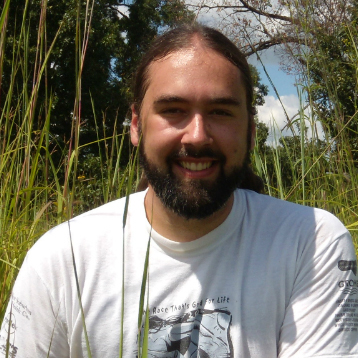
Jonathan Bauer
Bauer will be using the greenhouse space to test how plants respond to soil microorganisms, especially beneficial fungi.One goal of these projects is to find ways to manage farms to promote beneficial soil microorganisms, but minimize the effects of soil pathogens, he said. His lab will put these ideas into practice at the Institute for Food farm.
He is also working with conservation organizations to find soil microorganisms that can help re-establish rare plant species. He plans to test some of those ideas at Miami’s Ecology Research Center.
Bauer received his doctorate from Indiana University, Bloomington and was a postdoctoral researcher there before joining Miami.
Follow him on Twitter @JonathanTBauer.
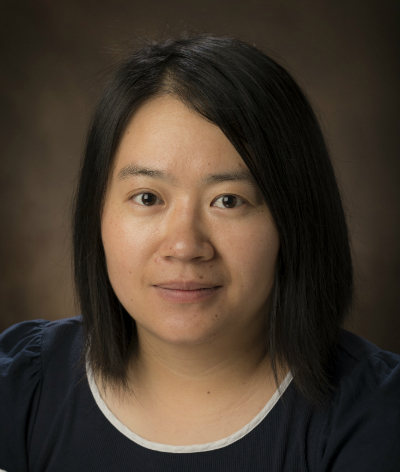
Meixia Zhao
Zhao’s research focuses on bioinformatics and functional genomics to understand the evolution of agronomically important crop species.
In the greenhouse, Zhao is conducting genomics experiments on corn.
Last month she planted the seeds from corn she and her students harvested. That corn — which she planted shortly after she moved to Oxford in June — was grown at the Ecology Research Center.
Zhao is mentor to six undergraduate students who work with her in the field, lab and greenhouse.
She received her doctorate from Purdue University and was a postdoctoral fellow and research associate there before joining Miami.
Follow her on Twitter @MeixiaZhao.
The Institute for Food farm: Seedlings start in the greenhouse
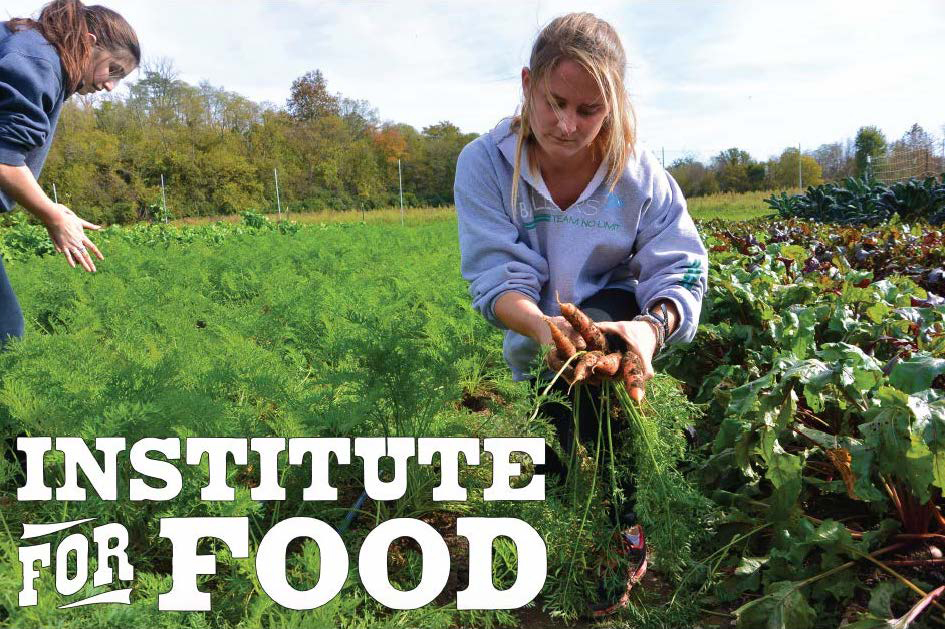 Miami’s Institute for Food (IF) — now in its fourth year — is growing. It came under the umbrella of the Institute for the Environment and Sustainability (IES) in 2016, according to Peggy Shaffer, co-director of the IF.
Miami’s Institute for Food (IF) — now in its fourth year — is growing. It came under the umbrella of the Institute for the Environment and Sustainability (IES) in 2016, according to Peggy Shaffer, co-director of the IF.
Bauer’s joint appointment with IES supports teaching and research connected to the farm.
A new co-major in food systems and food studies has been developed and is likely to be implemented by fall semester 2019, Shaffer said.
The IF farm is growing into a sustainable, mid-sized, intensive vegetable farm. Some of the crops grown for the farm's community supported agriculture (CSA) program are started as seedlings at the Belk greenhouse before being transplanted at the farm. Read more about the program on the farm's blog at blogs.miamioh.edu/if-farm/2018.
A new website, "Educating From the Ground Up," developed by Ben Jacks, associate professor of architecture and interior design, offers a wealth of information about the historic farm and the local food system.
Pearson Hall greenhouse renovation will enhance research space
Renovation of the Pearson Hall greenhouse — part of phase two of the Pearson renovations — will be complete by next spring. Located on the third floor, it will overlook Pearson’s new glass-enclosed atrium.
Read more about the renovations on the College of Arts and Science website.
 Not just for research: Beauty, teaching, outreach
Not just for research: Beauty, teaching, outreach
Belk greenhouse, a year-round home to beautiful blooms as well as research, is a destination for artists, schoolchildren and community members.
Stop by and meet Keegan (pictured at left), take a tour and enjoy the plant diversity and beauty.
The Conservatory at the Regionals – Hamilton campus
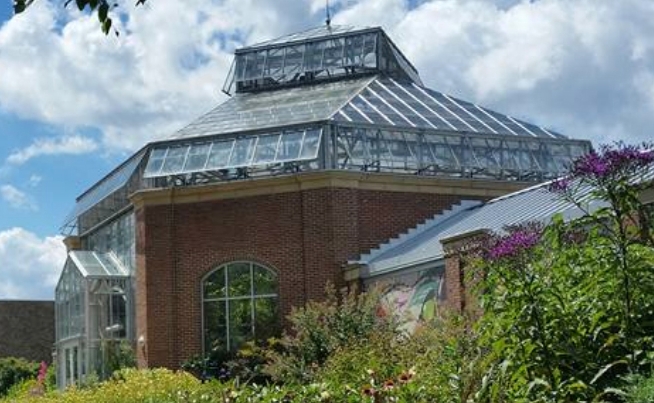 Miami's Conservatory at the Hamilton campus offers public education and interpretive programs and a beautiful venue for events.
Miami's Conservatory at the Hamilton campus offers public education and interpretive programs and a beautiful venue for events.
The Conservatory recently won an Honorable Mention in the All-America Selections (AAS) Landscape Design Challenge Contest for “Prominent AAS Garden Placement.”
Read more about the Conservatory at The Conservatory at Miami Hamilton website.
